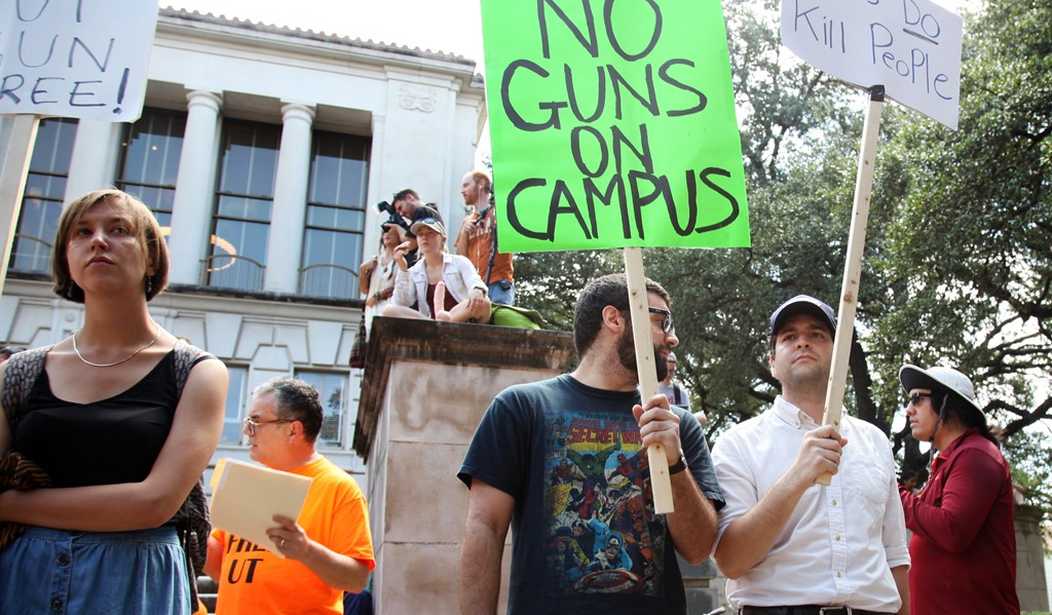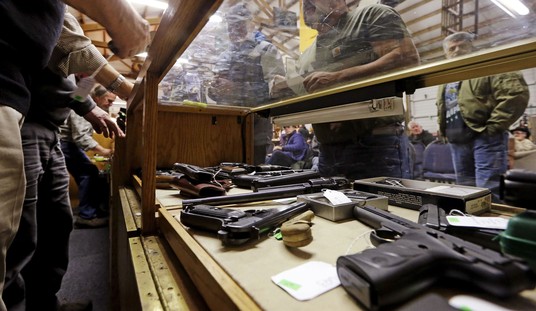There’s a legislative battle brewing in Arizona over the issue of campus carry, which is also expected to be a major topic during this year’s session in Oklahoma.
Nearly a dozen states currently allow for the lawful carrying of firearms on college and university campus settings, but opponents in Arizona are still using the same tired arguments they’ve been trotting out for decades; the presence of a gun in a classroom will turn heated debates into gunfights, drunken college kids will be shooting up the quad every weekend, and campuses are safe places so why does anybody need to carry a gun, to name just a few.
Students for Concealed Carry’s David Burnett has a simple question for those critics of campus carry: if these same faculty members, staff, and students can already carry off-campus, why shouldn’t they be able to do the same on campus?
Characterizations that college students are fraught with mental illness, alcoholism and general immaturity are not only harmful and offensive, but suspiciously contrary to the recruiting pitches those same colleges (and the military) use to attract top-tier talent.
But even if students were as bad as critics insist, campus carry applicants are subject to a rigorous application process that would weed out dangerous applicants.
Permits are only available to persons over 21, and include state and federal criminal background checks, mental health background checks, residency and citizenship verifications, training requirements and identification/fingerprinting.
In practice, campus carry is a sensible, narrowly tailored provision to comply with existing licensing laws, affecting only a small minority of campus patrons who have demonstrated clean records.
These permit-holders already carry in the rest of the state, including restaurants, banks, shopping malls and movie theaters. Nothing about a college suddenly renders these same professors, seniors or graduate students irresponsible.
I can’t emphasize Burnett’s last point enough, because this, to me, is where the anti-campus carry arguments really fall apart. The vast majority of folks I’ve talked to who are opposed to campus carry are actually opposed to others carrying a firearm in self-defense in all situations, not just on a college or university campus. But the fact remains that concealed carry holders are going to be just as responsible on campus as they are off-campus; an argument that was also made by the chancellor of Texas A&M several years ago as the campus carry debate roiled the Lone Star State.
While most higher education leaders oppose campus carry, Texas A&M System Chancellor John Sharp broke from precedent Thursday by throwing his support behind Birdwell’s proposal. In a letter to Lt. Gov. Dan Patrick, Sharp said “having licensed gun owners in possession of legal weapons on our campuses does not raise safety concerns for me personally.”
The real question is this: “Do I trust my students, faculty and staff to work and live responsibly under the same laws at the university as they do at home?” Of course I do!” Sharp added.
“However, properly funding the higher education of these students is the only issue that counts! This is my personal opinion. The Texas A&M University System will not have a position on this issue, and will not oppose campus carry.”
Most higher education leaders, including new University of Texas System Chancellor William McRaven, vehemently oppose campus carry. McRaven has issued his own letter to legislative leaders, saying as a Navy SEAL and former head of Special Operations Command he believes allowing concealed carry at universities would make campuses “less safe.”
Thankfully McRaven’s argument didn’t win out in Texas, but it would be a shame if the similar arguments put forth by opponents in Arizona carry the day. Campus carry makes sense, but the gun control lobby is doing everything it can do substitute fear for facts in the current debate, and it remains to be seen which side will emerge victorious when the legislative session concludes later this year.








Join the conversation as a VIP Member